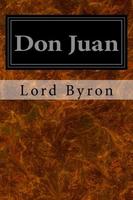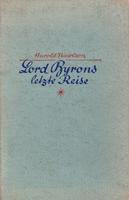Lord Byron

photo credits: Wikimedia Commons
George Gordon Byron, 6th Baron Byron (22 January 1788 – 19 April 1824) was an English poet and peer. He was one of the leading figures of the Romantic movement, and is regarded as among the greatest of English poets. Among his best-known works are the lengthy narratives Don Juan and Childe Harold's Pilgrimage; many of his shorter lyrics in Hebrew Melodies also became popular. Byron was educated at Trinity College, Cambridge before travelling extensively across Europe to places such as Italy, where he lived for seven years in Venice, Ravenna, and Pisa after he was forced to flee England due to being threatened with lynching. During his stay in Italy, he frequently visited his friend and fellow poet Percy Bysshe Shelley. Later in life Byron joined the Greek War of Independence fighting the Ottoman Empire and died leading a campaign during that war, for which Greeks revere him as a folk hero. He died in 1824 at the age of 36 from a fever contracted after the first and second sieges of Missolonghi. His only legitimate child, Ada Lovelace, was a founding figure in the field of computer programming based on her notes for Charles Babbage's Analytical Engine. Byron's extramarital children include Allegra Byron, who died in childhood, and possibly Elizabeth Medora Leigh, daughter of his half-sister Augusta Leigh. Source: Wikipedia (en)
Authors influenced by Lord Byron 14
Works about Lord Byron 3
Human - wd:Q5679

























